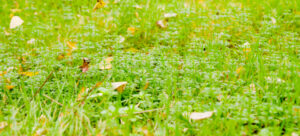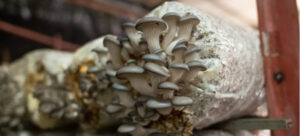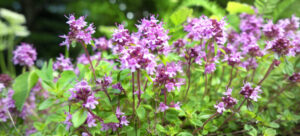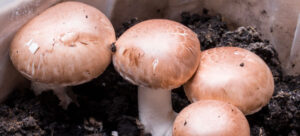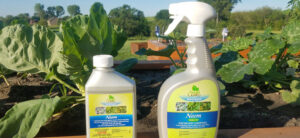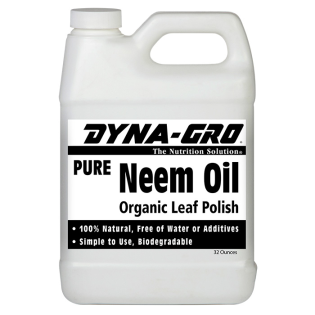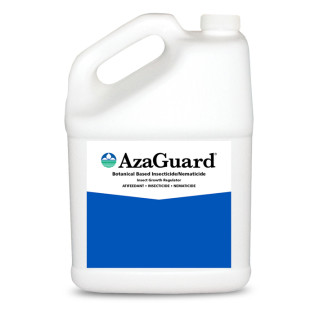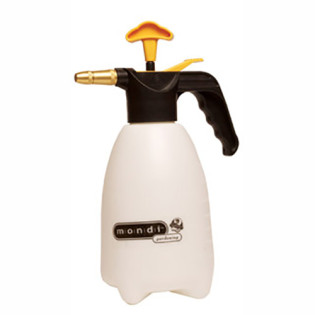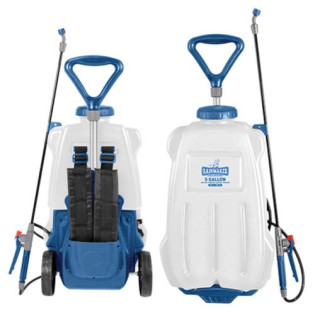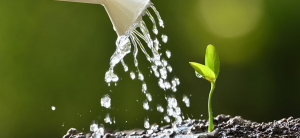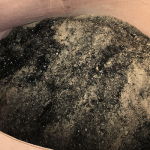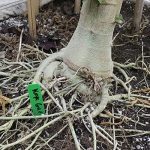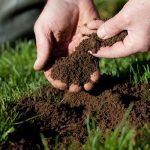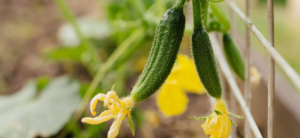
By learning when & how to use neem oil properly, you can prevent many plant pests & diseases.
In a perfect world, you would be able to grow plants that didn't need any help getting to the finish line. No weeding, watering, and most importantly, pests or fungi. However, most growers have experienced their fair share of crop issues.
To become the best grower you can be, you need to be aware of all the best strategies, techniques, and products. Keeping up with the quickly evolving technology will help keep your garden as healthy and productive as it can be.
If you’re wondering how to use neem oil on plants, you've come to the right place. Read on as we discuss when the best time to apply it is, and how to actually use it for different garden care issues.
First, though, let's discuss what this product even is, along with the benefits you'll enjoy by adding it to your arsenal.
What Is Neem Oil Spray For Plants?
What is neem oil spray for plants, first of all?
Neem oil spray is a garden remedy that green thumbs have been using for centuries to control insects. It’s extracted from the fruits and seeds alike of the neem plant or Azadirachta indica.
Neem oil spray can be one of several colors, including red, brown, and yellow. It has a unique aroma that’s been described by many gardeners as a combination of garlic and peanuts. Needless to say, it’s not a scent you'd want to use as a replacement for your favorite perfume!
However, its unique composition and fragrance make it quite beneficial in removing all manner of pests and diseases from your garden.
What Compound Makes Neem Oil Spray For Plants An Organic Pesticide/Fungicide?

There are several insecticidal properties in neem oil that make it such a potent solution. Azadirachtin is the most important.
The pressed oil can have up to 2,500 ppm of azadirachtin depending on how it was extracted.
This compound is detrimental to pests. It causes many species to lose their appetite while stunting their growth and reproductive processes.
What Do Growers Use Neem Oil Spray For?
Now that we've answered the first question, "what is neem oil?", we can move on to what growers use this natural pesticide for. Many growers love using neem for plants as a deterrent or to combat an issue because it’s completely natural.
This means you don’t have to worry about it harming the soil or other organisms, including anyone who consumes your plants come harvest season! This is important for creating a healthy gardening environment in the long term.
By using neem oil for your crop issues, you won't have to worry about harming beneficial pollinators, earthworms, or important microbes and bacteria!
What Bugs Does Neem Oil Spray For Plants Kill?
When it comes to organic pesticides, you won’t find a better option than neem oil for plants. It can be used to target and get rid of more than 200 different insects, including some of the most irritating garden pests.
Even better when it comes to fighting an infestation is it can target bugs at the egg, adult, and larval stages.
Just to name a few, neem oil can kill:
It can be used on both indoor and outdoor plants. Since it’s safe to use around people, it’s a great option for houseplants.
It’s also safe in greenhouses and grow rooms, unlike some products. It can even be used as a fungicide, helping to smother fungal infections like scab, rust, and powdery mildew. It can even kill some types of bacteria!
When To Use Neem Oil For Plants To Achieve The Healthiest Crop Possible
Now, let's start discussing how to use neem oil on plants by covering when to use neem oil for plants. As with most insecticides or garden treatments, the best time of day to apply this product is early in the morning, ideally on an overcast day.
There are two reasons for this. Any heat will dry up the product before it has a chance to really put a dent in your issue. Plus, the oil may create a lens on your foliage. Then, when the sun shines through, it could cause burns.
Make sure to use it quickly as the compounds become inactive within a day or so.
How Frequently To Use Neem Oil For Plants
It can be applied as often as you'd like, but once every two weeks is ideal (or once per week if you have a particularly severe infestation).
You have so many options when it comes to applying neem oil to plants. Apply it during any season (including during the winter) to help get rid of pests that go dormant or survive particularly harsh periods of weather. It can be used as a foliar spray or even as a holistic soak.
You can even make a “cake” out of neem oil to add nutrients to the soil. It is mostly safe for use around other humans and animals when used properly.
Staying Safe While Using Garden Care Products
There are a few issues that may arise as a result of your use of neem oil spray for plants. For starters, It can cause some irritation to the skin or eyes. It can also be irritating to the stomach when ingested.
Both of these issues are avoided entirely by using proper PPE. Gloves, protective eyewear, and in some cases, a mask, are standard procedures when spraying anything on your plants. However, it is far from toxic. We still recommend you play things safe and keep it out of the reach of children & pets.
Avoid spraying on windy days to reduce the risk of neem oil getting into your eyes. You’ll also want to be mindful of the fact that it can be toxic to other insects when used in large quantities. This means if you're following an integrated pest management strategy that features beneficial bugs, you need to exercise extra caution. But as long as you use neem oil for plants in moderation, you shouldn’t have an issue with it harming ladybugs, bees, butterflies, and other beneficial insects.
How To Use Neem Oil On Plants To Prevent Pests
The most important thing to note when you’re planning on using organic neem oil in your garden is that this oil does not mix well with water.
When used preventatively, organic neem oil can offset the impact of all kinds of pest infestations. If you plan on using it as a preventive, plan on applying it once every ten days to prevent an infestation from taking hold.
Looking to make your own DIY spray? It’s easy, all you need to do is; combine a quart of warm water, a teaspoon of organic neem oil, and ⅓ teaspoon of insecticidal soap. Use the same ratio to make bigger amounts for larger organic gardens.
Then, fill a garden sprayer with the mixture and apply it to your garden, shaking it while you do so to ensure that it applies evenly. When using a spray bottle, just make sure you have it on the finest mist setting, and apply it to both the top and bottom of your plants’ leaves.
If you’re able to, turn the plants 360 degrees to make sure all parts are evenly covered. Plan ahead so that you don’t use neem oil before a harvest. Ideally, you should give your plants a three-week “withdrawal period", as the oils can impart a lingering flavor.
How To Use Neem Oil To Remedy A Pest Infestation
If you’re using organic neem oil spray for plants to manage an existing pest infestation, the recommendations for applying will be more or less the same.
However, you’ll want to apply it to your plants more often - ideally, once a week or more. A good rule of thumb when dealing with a pest infestation is that you “test” it before applying it to the whole plant.
Spray the neem oil on a limited area of the plant, testing it on affected leaves but limiting your exposure to just one section of the plant. This will help you make sure the solution is working and to make sure your plant is not experiencing any adverse reactions. Use organic neem oil as often as you need it or once per week to get the infestation under control.
Before using neem oil on a suspected pest infestation, make sure you rule out other factors that could be causing your plants duress. For example, make sure your plants aren’t stressed by other growing conditions like poor watering, extreme temperatures, or a nutrient issue.
What Are The Best Neem Oil Products To Use On Plants?
You can purchase this product in a variety of concentrations. If you want to get the most bang for your buck, your best bet is to go with a liquid concentrate. Here are some of the best neem oil products currently on the market.
You might be asking yourself, what plants not to use neem oil on? All you really need to worry about is not using on recent transplants or otherwise stressed plants.
Monterey Lawn & Garden Organic Neem Oil
Monterey Lawn & Garden Neem Oil is a 70% neem oil concentrate that serves as a broad-spectrum pesticide, insecticide, and fungicide. It can control all kinds of bugs and diseases. Compared to similar products, it may be the most versatile on the market right now. Monterey Lawn & Garden can be used on fruit trees, vegetables, ornamentals, and more - and it’s ideal for use in an organic setting.
BioSafe AzaGuard
BioSafe AzaGuard's primary active ingredient is a highly concentrated 3% Azadirachtin formulation. Azadirachtin, a chemical compound belonging to the liminoid group, is formulated through an extraction process, which yields the purest form of the neem extract. AzaGuard’s raw neem oil extract is then concentrated. This high-grade Azadirachtin formula yields a higher percentage of critical limonoid components including nimbin, nimbidinin, and salannin.
Dyna-Gro Pure Neem Oil Concentrate
Dyna-Gro Pure Concentrate is another organic neem oil product that can be used both indoors and outdoors and is approved for organic use. An organic “leaf polish,” can be used on any plant to help prevent pests and produce clean, shiny leaves without clogging their stomata.
Final Thoughts On When & How To Use Neem Oil
Organic neem oil is a powerful tool to have in your growing arsenal. Not only can it help prevent and control certain kinds of diseases and pests, but it provides a myriad of other benefits to your plants as well.
Ready to start using it on your plants? All that’s left is to head over to our website to pick some up to have on hand. You’ll be ready for anything the growing season throws your way!

